Lower Decks Is Bringing Dorky Back to the Star Trek Universe
This article is more than 2 years old
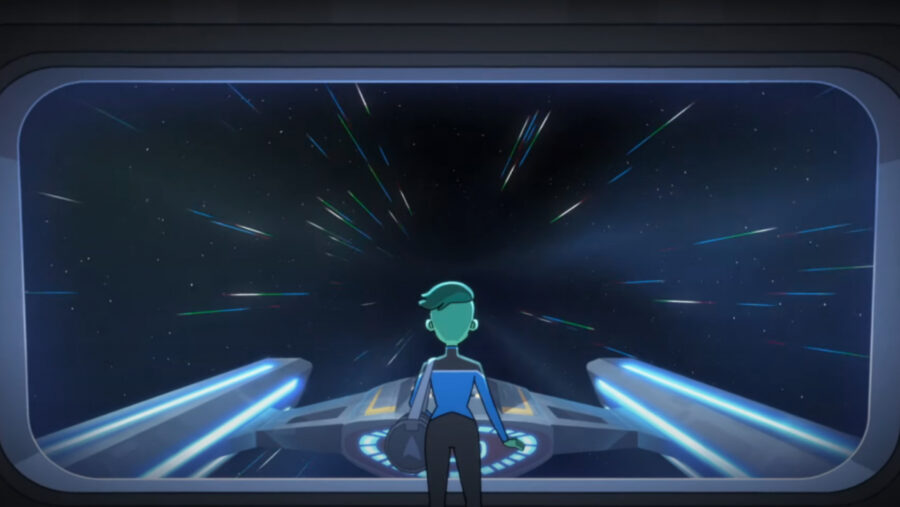
Star Trek: Lower Decks is three episodes into its run and that’s enough material to gauge exactly what it wants to accomplish in the Star Trek universe. Detractors of the show will say that it’s nothing more than a satirical slap in the face to hardcore Trekkies. There are plenty of low-effort YouTube reviewers espousing their bile towards the show if you really want to look them up. Suffice to say, many fanatics simply can’t see past the show being a comedy.
What’s disappointing about this read of the show is that Star Trek: Lower Decks has a fairly clear goal in mind with regards to its feelings towards Star Trek as a creative world. And what is that goal? To remind people that Star Trek is for utter dorks. Because Star Trek hasn’t been dorky for a long time.
Lower Decks vs. NuTrek
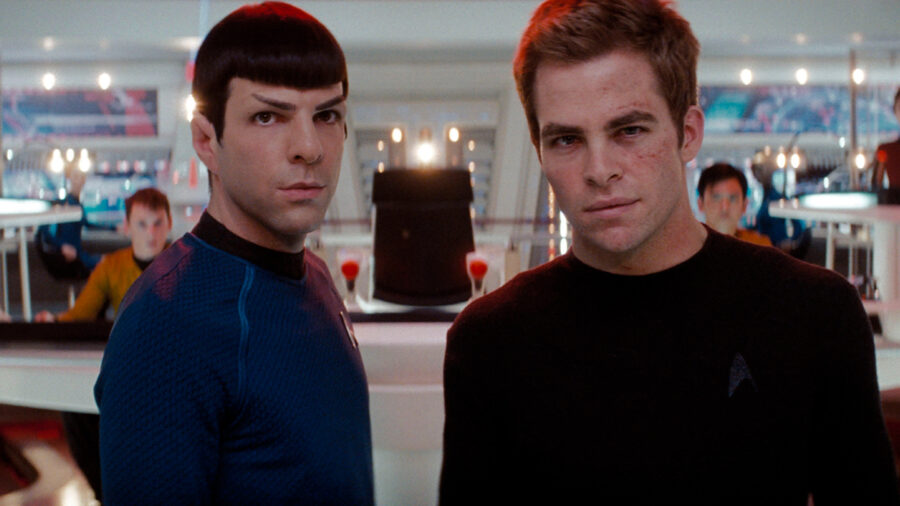
When Star Trek got rebooted in 2009 with the J.J. Abrams film, a new edict was formed for the franchise as a whole: be cool. Star Trek needed to be a successful sci-fi/action property in order for it to continue in the feature film arena of Event Cinema. It had to appeal to younger viewers and people who had zero interest in Star Trek. Unfortunately, this often meant prioritizing sleek aesthetics over thoughtful storytelling, resulting in the worst Star Trek movie of all time. This philosophy of “crazy/sexy/cool” carried over to the CBS All Access shows and it has maintained a constant presence in the series for over a decade.
Here’s the problem: Star Trek was never cool. It was a property that attracted a lot of social outcasts and uber-nerds who cataloged every piece of lore and technical minutiae across every incarnation of the show. The idea of Star Trek being hip is counterintuitive to the foundations it was built upon. Yes, the show was popular during various points in its run, but it’s hard to argue that coolness was a motivating factor behind any Star Trek vehicle before the ’09 reboot.
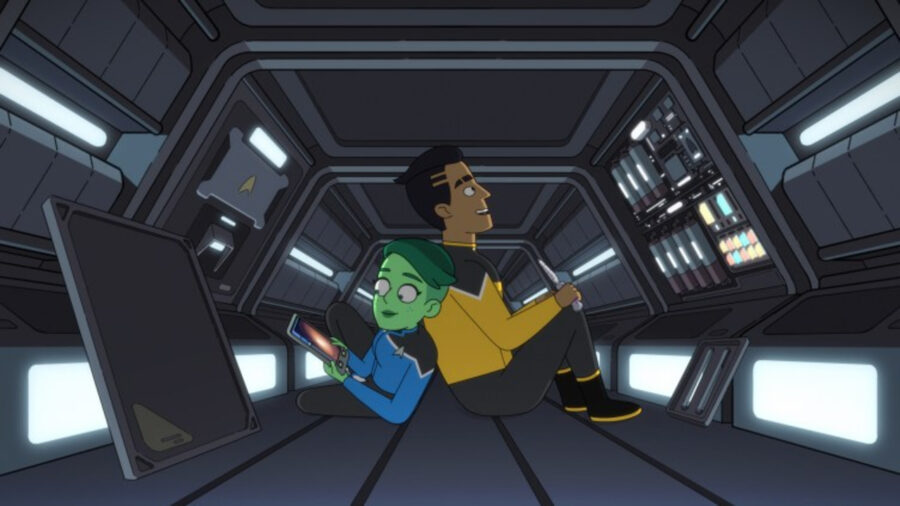
Which brings us back to Star Trek: Lower Decks. Mike McMahan’s show is so clearly on the side of the dorks. Each of the main characters (Mariner, Boimler, Tendi, and Rutherford) are easily classifiable as Star Trek nerds. Mariner loves all the action-driven lore of Starfleet, Boimler is a booksmart dweeb for regulations, Tendi is giddy for every opportunity she gets, and Rutherford is head over heels in love with his engineering work. These are characters that represent different facets of Star Trek’s heart: passionate nerds with warmth and goodness in them.
And that’s something Star Trek needs now more than ever.
Why Star Trek Needs to Stop Being Cool
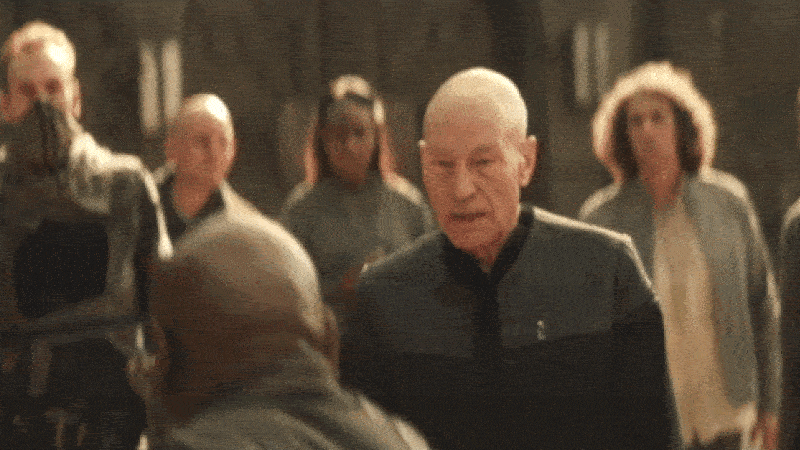
Star Trek: Lower Decks stands in such stark contrast to the current direction of Star Trek that it probably feels like whiplash for some fans. Star Trek: Discovery and (even more so) Star Trek: Picard have prided themselves on being Serious Business storytelling, but they also want to present themselves with an aura of badassness and contemporary coolness. Whether it’s a samurai Romulan or blockbuster-worthy space battles, NuTrek is obsessed with being awesome.
That ain’t at all what Star Trek: Lower Decks is concerned with. Its stories have been more about taking regulation ideas and lovingly poking fun at them. In doing so, it actually better illuminates issues that inform the Trek universe. For example, the episode “Temporal Edict” features Captain Freeman putting the entire Cerritos crew on strict timelines and quotas. This ends up overwhelming everyone and allowing a primitive alien race to invade the ship and trash it. Star Trek: Lower Decks did an episode that’s about workplace stress and the manufactured weight higher-ups can put on themselves and their staff. That’s not a “cool” story but it’s one that feels so right to tell in a classic Star Trek episode.
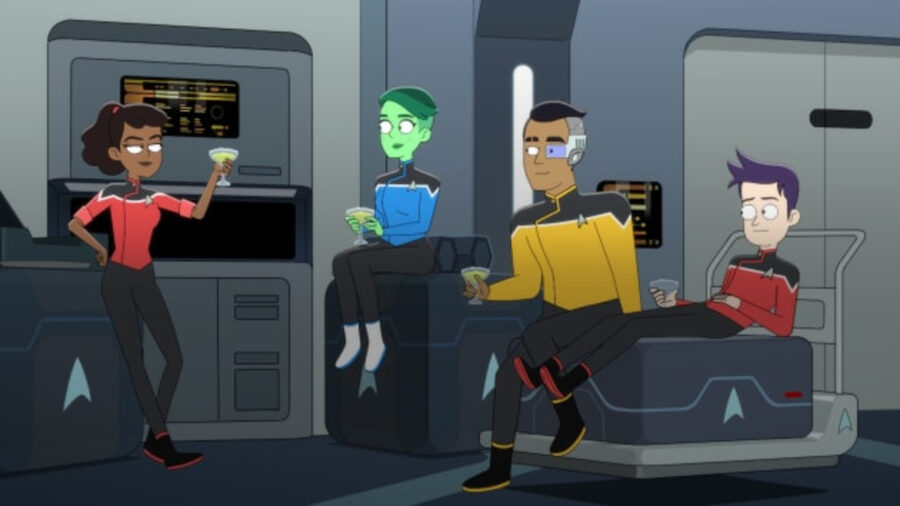
Because Star Trek doesn’t need to be cool. It needs to be smart. Star Trek: Lower Decks doesn’t appear smart to some fans because they can only see the surface comedy of the endeavor. If they stopped for just a second and peeled back the layers of storytelling, they’d see that Star Trek: Lower Decks is doing the exact same kind of structured storytelling that you’d find in episodes of Star Trek: The Next Generation.
If there’s any doubt that Star Trek: Lower Decks has its heart in the place, just look at the ending of “Temporal Edict”. In the far future, a classroom is being taught about important Starfleet figures. Who is named as possibly the most important Starfleet officer of all time? Chief Miles O’Brien. If that isn’t a playful bit of dork appreciation from the writers, what else could it be?
Star Trek: Lower Decks is a show that is celebrating the nerdiest angles of the Star Trek universe. It doesn’t want to highlight the coolest or the hippest ideas in the property. It wants to be an OG nerd. In a world where the geek have inherited the Earth, that’s a hard thing to accomplish. Still, Star Trek: Lower Decks is doing exactly that. Hopefully, fans who consider themselves truly enamored by the world of Star Trek can see that in this new show. Because Star Trek needs to be more like Star Trek: Lower Decks and less like the crazy, sexy coolness of NuTrek.











